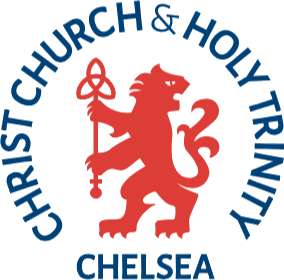INTENT
- A high-quality history education will help pupils gain a coherent knowledge and understanding of Britain’s past and that of the wider world.
- It should inspire pupils’ curiosity to research and understand more about the experiences of people in the past.
- Teaching should equip pupils to ask perceptive questions, think critically, weigh evidence, sift arguments, and develop perspective and judgement.
- History helps pupils to understand the complexity of people’s lives, the process of change, the diversity of societies and relationships between different groups, as well as their own identity and the challenges of their time.
- In learning about the past, children can try to understand the present and feel more equipped to take an active part in their future.
IMPLEMENTATION
- The history curriculum is carefully planned and structured across the whole school, to ensure that current learning is linked to previous learning and that the school’s approaches are informed by current pedagogy.
- This spiral model of teaching and learning encourages children to make links and understand the interconnectedness of events in the past.
- In ensuring high standards of teaching and learning in history, we implement a curriculum that provides progression throughout the whole school.
- We fulfil the requirements of the National Curriculum for History, equipping pupils with knowledge about the history of Britain and how it has influenced and been influenced by other cultures and other times.
- All History units in our school have a degree of focus on the themes of Race/Belonging; Migration and Empire
- We ensure the development of historical concepts, knowledge and skills and aim to inspire in all our pupils a curiosity and fascination about the Britain’s past and that of the wider world, including ancient civilisations and empires.
- It is the responsibility of teachers to ensure that all pupils, irrespective of gender, ability, race or SEND, have access to the curriculum and make the greatest progress possible. Teachers set suitable learning challenges and respond to each child’s different needs, culture and interests.
How the units of learning are organised:
- Early Years learning is based on the ELG, Understanding the World- People, Culture and Communities; Past and Present and the Natural World. The focus is on key concepts, objectives and skills.
- In KS1, pupils are introduced to learning about changes in living memory and beyond living memory, by learning about the lives of significant people of the past, understand the methods of historical enquiry and beginning to ask and answer questions about the past.
- In Lower KS2, pupils learn about the history of Britain including the Stone Age, Romans and Tudors. This creates a timeline into and around which a wider range of topics such as Ancient Greece, Vikings, Victorians and WWII are placed in Upper KS2.
- Each class completes two History units per year. Coverage of a few additional topics is ensured through assemblies, home learning, trips and access to specific non-fiction books- eg How did the first flight change the world? How unpleasant were the Bronze and the Iron Ages? What Impact did the Anglo Saxons have? Why do we remember the Maya? How has communication changed over time?
- The History topics frequently form the core of our cross-curricular approach to teaching, support and engaging our pupils with work in many other subjects, including English, Art, Music and RE. In this way, children are able to gain a richer and deeper understanding of a given particular era.
- We aim for our children to enjoy and love learning about history by gaining appropriate knowledge and skills, not just through experiences in the classroom, but also with the power of educational visits, visitors and real and replica artefacts.
IMPACT
- Our systematic approach to planning and teaching of history equips our pupils with the historical skills and knowledge that will enable them to be ready for the curriculum at Key Stage 3 and for life as an adult in the wider world.
- They should be able to describe key events in British history up to the Norman conquest, and have an understanding of both the inventions and achievements of ancient civilisations and key events of the modern age.
- Pupils of all ages should understand how past events can be researched. Older pupils may be able to explain concepts such as the reliability of or bias in historical evidence, and take these into account when considering historical data. By doing so, they can become not just passive recipients of factual information, but enquiring and challenging thinkers who appreciate that there is much we can learn about the past, and have the skills and the passion for doing so in the future.




